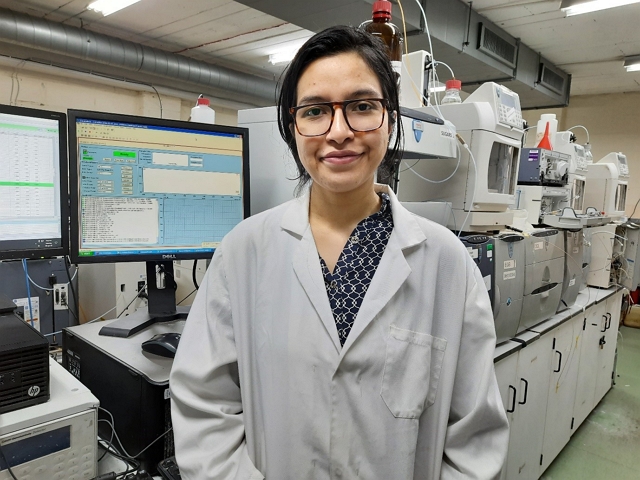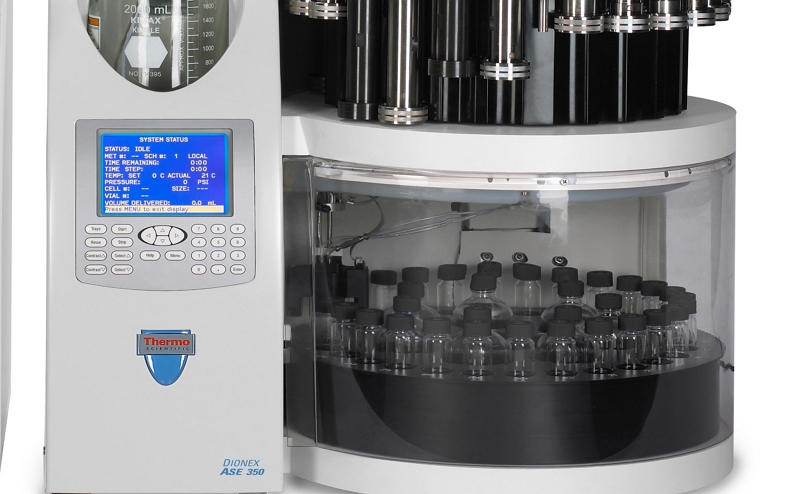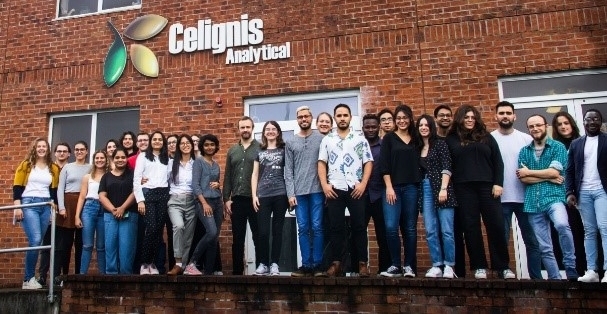Analysis of Sterols
Background
Sterols are a class of naturally occurring compounds found in plants, animals, and fungi. They are a type of lipid,
structurally similar to cholesterol, and play essential roles in various biological processes.
The most well-known sterol is cholesterol, which is primarily found in animal tissues, but there are several other sterols
with important functions as well.
Plant sterols, also known as phytosterols, are commonly found in the cell membranes of plants. The two main types of plant sterols are sitosterol, campesterol, and stigmasterol. These sterols have a similar structure to cholesterol but with slight variations. Plant sterols are naturally present in various plant-based foods such as fruits, vegetables, nuts, seeds, and oils.
Sterols, both animal and plant-derived, have important physiological functions in the body.
Plant sterols, also known as phytosterols, are commonly found in the cell membranes of plants. The two main types of plant sterols are sitosterol, campesterol, and stigmasterol. These sterols have a similar structure to cholesterol but with slight variations. Plant sterols are naturally present in various plant-based foods such as fruits, vegetables, nuts, seeds, and oils.
Sterols, both animal and plant-derived, have important physiological functions in the body.
Sterols in Different Types of Biomass
Examples of some common sterols found in herbal leaf extracts are provided below:
Get more info...Herbal Leaf Extracts
- Beta-Sitosterol - This is one of the most prevalent plant sterols found in herbal extracts. It is structurally similar to cholesterol and can be found in various plant sources, including herbs like saw palmetto, pygeum, and stinging nettle.
- Campesterol - This sterol has been investigated for its potential cholesterol-lowering effects and may contribute to the cardiovascular health benefits associated with plant sterol consumption.
- Stigmasterol - Found in various herbal extracts, including those derived from soybeans, fenugreek, and black cohosh. It has been studied for its potential anti-inflammatory and hormone-modulating effects.
- Delta-7-Sitosterol - A plant sterol found in certain herbal extracts, including those derived from saw palmetto and pumpkin seeds. It is often associated with potential benefits for prostate health.
- Other Plant Sterols - Brassicasterol, avenasterol, and stigmastanol, are examples of other sterols that can be found in herbal leaf extracts.
Get more info...Herbal Leaf Extracts
Examples of some common sterols found in bark are provided below:
Get more info...Bark
- Beta-Sitosterol - A very common plant sterol that has been studied for its potential benefits for heart health and its anti-inflammatory properties.
- Stigmasterol - Also found in some bark extracts, stigmasterol has been researched for its potential anti-inflammatory and antioxidant properties.
- Campesterol - This sterol, found in the bark of some trees, has been studied for its potential cardiovascular benefits.
- Cycloartenol - This is a precursor of other plant sterols and is involved in the biosynthesis of steroidal saponins and other complex molecules in plants.
Get more info...Bark
Below are listed some examples of some seeds in which sterols are found:
Get more info...Seeds
- Sunflower Seeds - These seeds contain a significant amount of plant sterols, particularly beta-sitosterol, campesterol, and stigmasterol.
- Sesame Seeds - These are another good source of plant sterols, including beta-sitosterol and campesterol.
- Pumpkin Seeds - Contain a variety of plant sterols, with beta-sitosterol being the most abundant.
- Flaxseeds (Linseeds) - Their sterols include beta-sitosterol, campesterol, and stigmasterol.
- Rapeseeds (Canola) - Canola oil, derived from the seeds of the canola plant, is a rich source of plant sterols, including sitosterol, campesterol, and brassicasterol.
Get more info...Seeds
Examples of some sterols found in brown seaweed are listed below:
Get more info...Brown Seaweed
- Fucosterol - This is one of the most abundant sterols in brown seaweeds. It has been studied for its potential health benefits, including antioxidant and anti-inflammatory effects.
- Ergosterol - Present in some brown seaweeds, for example Ecklonia cava, common in Korea and Japan, contains sterols ergosterol as well as fucosterol.
- Brassicasterol - Present, alongside fucosterol, in ascophyllum nodosum (Knotted Wrack).
- Campesterol - Found in Sargassum fulvellum, among other brown seaweed species.
- Saringosterol - This sterol is also found in Sargassum and has been studied for its potential health benefits.
- 24-Methylenecholesterol - Has been found in Sargassum species, such as Sargassum muticum and Sargassum fusiforme (also known as Hijiki seaweed).
Get more info...Brown Seaweed
Examples of some sterols found in green seaweed are listed below:
Get more info...Green Seaweed
- Fucosterol - While more common in brown seaweeds, fucosterol is also found in some green seaweed species, such as Ulva lactuca.
- Cholesterol - This sterol has been detected in Caulerpa lentillifera (also known as "sea grapes" or "green caviar") and in Codium fragile (commonly referred to as "green sea fingers" or "dead man's fingers").
- Campesterol - Has been found in species such as Ulva lactuca and Caulerpa lentillifera.
- Beta-sitosterol - This sterol has been identified in Ulva pertusa.
Get more info...Green Seaweed
Examples of some sterols found in red seaweed are listed below:
Get more info...Red Seaweed
- Cholesterol - Palmaria palmata, commonly known as dulse, has been reported to contain cholesterol.
- Fucosterol - An example of a red alga containing fucosterol would be species from the genus Gracilaria.
- Ergosterol - Species of the genus Laurencia have been found to contain ergosterol.
Get more info...Red Seaweed
Extraction of Sterols from Biomass
The extraction process, including the solvents and methods used, can influence the concentration and types of sterols present in the final extract.
It is often the case that a balance needs to be found between fully-extracting all sterols while also ensuring that the compounds that are
obtained are of a high quality and not degraded.
At Celignis we have extensive experience in the design and optimisation of extraction protocols for a wide variety of chemical constituents from many different biomass types. If needed we can also work on processes to separate and purify the target compounds.
Click here to read more about Celignis's Bioprocess Development Services for the extraction of chemicals from biomass.
Get more info...Biomass Extractions
At Celignis we have extensive experience in the design and optimisation of extraction protocols for a wide variety of chemical constituents from many different biomass types. If needed we can also work on processes to separate and purify the target compounds.
Click here to read more about Celignis's Bioprocess Development Services for the extraction of chemicals from biomass.
Get more info...Biomass Extractions
Analysis of Sterols at Celignis
We have the necessary equipment and expertise to determine the amount and distribution of sterols in
a wide variety of biomass samples.
Feel free to get in touch with us to request further information and a quotation.
Request a QuoteSterols Analysis
Feel free to get in touch with us to request further information and a quotation.
Request a QuoteSterols Analysis







